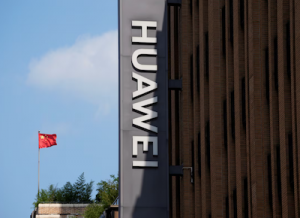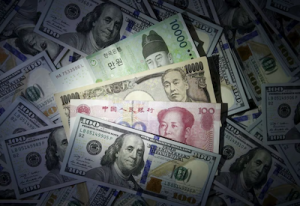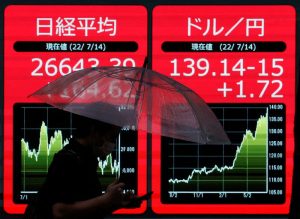China is bent on preventing systemic financial risks from emerging in the nation, indicating that contagion risks can be contained even as heightened levels of stress are priced into its bond market, Goldman Sachs said.
A string of defaults among lower-grade bond issuers, and worries over property giant Evergrande Group and troubled bad debt manager China Huarong Asset Management have fueled investor jitters this year. Investor concerns over the risk of more defaults and possible contagion are reflected in rising so-called tail risk, with China property bonds rated B or below yielding above 15%, said Kenneth Ho, head of Asia Credit Strategy, in an August 20 note.
Despite that, Goldman doesn’t see stresses spilling over to the broader China credit market and says defaults will have to worsen substantially for broader contagion to take hold. Ho notes that the vast majority of offshore bonds have yields in the low-to-mid single digits, indicating credit concerns are confined to lower-rated property developers rather than the broader China credit market.
“While we believe implicit government support has waned, it does not mean it has been fully removed,’’ said Ho. “Policymakers can provide support without resorting to full bailouts, should market stresses begin to affect the broader economy. We believe contagion risks can be managed and systemic worries will not emerge.”
‘Reassuring Development’
The recent measures to recapitalize China Huarong via mostly state-owned investors was a “reassuring development,’’ Ho said. Officials also issued a rare rebuke to Evergrande last week, prompting the company to say it will do everything it can to resolve its debt issues.
Financial markets are worried that any crisis at Evergrande or Huarong could ripple through China’s banking system as they struggle to find the cash needed to pay their many lenders and suppliers. Analysts had warned that if Huarong collapsed it could spark a “Lehman moment” in China and lead to a systemic failure in the planned economy.
Goldman estimates the default rate for high-yield bonds in China so far this year is 3.9% with the notional amount of bonds in default amounting to $8.6 billion, of which a little over 78% were property companies. The picture is similar for China onshore bond defaults, where it estimates there were 16 defaults with the bond issuers having an aggregate amount of bonds outstanding at RMB99.3bn at the time of default. A little over half were property bonds.
Goldman though says volatility is likely to continue with policymakers clamping down on excessive leverage and emphasizing that housing is for living. That means policy easing in the property sector is unlikely and Ho thus prefers shorter-dated maturities to reduce price volatility and higher quality names to reduce credit volatility.
•By Kevin Hamlin
ALSO ON AF: Huarong’s State Rescue Seen Averting Risk of China’s ‘Lehman Moment’
This story was updated with a new meta description.
























